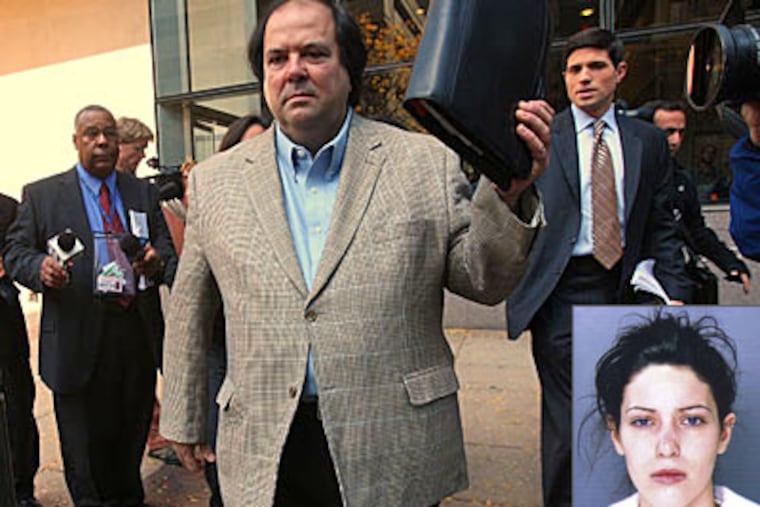Jocelyn Kirsch gets five-year sentence
Jocelyn S. Kirsch, the former Drexel University student who pleaded guilty to engaging in a bold identity-fraud scam, was sentenced this morning to five years in prison.

Jocelyn S. Kirsch, the former Drexel University student who pleaded guilty to engaging in a bold identity-fraud scam, was sentenced this morning to five years in prison.
"This sentence properly punishes the defendant, provides full restitution and protects the public," said U.S. District Judge Eduardo C. Robreno at the close of a two-hour hearing this morning.
The judge said the crimes were serious.
"There's no apparent object to these acts other than greed and a desire to fuel a lavish lifestyle," said Robreno. "A message must be sent out from this sentence that credit card fraud will not pay."
Robreno also ordered Kirsch, 23, to receive mental-health treatment in prison and to be supervised by probation officials for five years when she is released from prison. He also ordered her to pay just over $100,000 in restitution, minus several thousand dollars already set aside for the repayment.
Kirsch, in a voice barely audible, apologized for her actions during the sentencing hearing in federal court in Philadelphia. She showed no visible reaction when the sentence was imposed and was taken from the courtroom in handcuffs.
Kirsch, who has been in custody since June, pleaded guilty in July to conspiracy, access-device fraud, bank fraud, money laundering, and two counts of aggravated identity theft.
Earlier today Kirsch's attorney and government attorneys argued over the extent of Kirsch's psychological problems and whether these issues should be a factor in her sentence.
Kirsch, wearing a dark green prison-issued pants suit, sat quietly in the courtroom, often with her head down.
Assistant U.S. Attorney Louis D. Lappen said that under federal sentencing guidelines, Kirsch faced six or seven years in prison. He said he was satisfied with the five-year term, calling it a "fair sentence."
Her defense attorney, Ronald Greenblatt, sought a lesser sentence, arguing that Kirsch suffers from mental problems that contributed to her criminal actions.
"She is so clearly mentally ill," said Greenblatt, telling the judge that Kirsch made up stories about herself and her background in a manifestation of serious psychological problems.
She told people that she had violet eyes because she was of Lithuanian descent, when she was really wearing purple contacts, he said. She claimed she was an Olympic-class pole vaulter, when she was not.
She came from a tumultuous family background with parents who had a bitter split, and she and her only brother have not spoken in years.
Her problems, he said, "played a central role" in the crime.
But Lappen, while acknowledging that she "has some psychological issues," said such problems were not so serious as to warrant a break in sentencing. "This is not somebody who'se been in and out of mental institutions," he told Robreno.
Lappen said the criminal conduct was serious and premeditated. "It was very extensive, very well-thought-out. It involved lots of different levels of fraud," he said.
Kirsch's former boyfriend, Edward K. Anderton, who graduated from the University of Pennsylvania with a degree in economics, also pleaded guilty. He is scheduled to be sentenced Nov. 14.